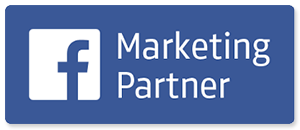Greg: Hey, welcome back everybody. Greg [Wartco] with greenindustrypros.com. Thanks for tuning in. We’re talking some more about the concept of online marketing and we’re getting help from Andrew from Lawn Care Marketing Expert. How are you doing today Andrew?
Andrew: Very good. I’m looking forward to this topic. It’s not something that you hear discussed a lot but it’s really critical to having a grand master plan for any social media plan that you put in place.
Greg: You bet it is, and it’s funny because I know some landscape contractors, I would suspect, the majority of those listening, the tech savvy guys that are listening, like the tools, like this podcast here today, they’ve been working diligently on their websites on their discipline of digital marketing and they’re doing things like newsletters and videos and social media and things. They been working hard to make sure consumers can find their websites on the search engines like Google and just when you think you’ve figured it all out, the rules all change. Right?
Andrew: Man. I’ll tell you. We spend so much time revamping our strategies. Just from an SEO perspective, we are changing our strategy and the things that we do for our clients at the agency. Every year, we are doing something different. You know?
Greg: You bet [inaudible 00:01:15] . . .
Andrew: So it’s definitely something that you have to stay on top of and really take a long view and have clear goals in mind.
Greg: You bet. So when we think, a contractor’s making sure all those right keywords are attached to the different pages of his website, so he can be found in Google and Bing and Yahoo and all that stuff. Try to explain, and this is a difficult subject but will try to do it as quickly and succinctly as possible because I don’t know how in tune to the stuff our listeners are but, Andrew, explain how the future of search is going to be changing, primarily because of social media, things like Facebook, Google+, etc.
Andrew: Okay. Well, social media is huge. I think probably the majority of your listeners, friends and family, either at least have a Facebook account, maybe they have Twitter, . . . if they’re professionals, they might be on LinkedIn. Google+ is the new social media network from Google or they might even be on YouTube, which has social functions as well. So, I’m going to assume that everybody is familiar with what social media is. Social media, and what I call social search, is really going to be the future of Google and Bing, and ultimately, social search, that’s the combining of social media data with search results is ultimately going to be the biggest threat to Google staying dominant, staying the dominant search engine.
Greg: Okay.
Andrew: And why is that? Why is social media such a threat to Google? So, let’s think about this. Think about how much incredible demographic data Facebook has on each of us, everybody who has their account on there. They know our birth date. They know what we like. They know what we share. They know what we interact with the most, who are friends and family are. I mean, in a lot of ways, what Facebook knows about us surpasses what credit card companies know about as.
Greg: That’s scary, really.
Andrew: Absolutely. Right? So, keep that in mind when you’re posting stuff on Facebook. So, having all this personal detailed data and knowing the relationships that you have with friends and family and how everybody on the planet and in the world is connected to one another, imagine what you can do with all that data. You can really provide the ultimate personalization of search results, when you’re searching for something. You combine that data with Google or Bing. You can personalize the search results in a way that we have only seen just a fraction of this to date. This is ultimately where the search engines are going.
Let’s step back again. Think about how we make decisions. When we . . . I went to dinner and a movie last weekend. So, what did I do? I went online and I check the reviews of the restaurant that I was thinking about going to. Okay. I decided, “Yes. I might want to check out this restaurant. Then, I got on my phone and I texted a couple of buddies of mine and said, “Hey, are there any good movies out? What do you recommend? Is there anything I should go see? I’m thinking about going to this restaurant. Is it good?” So, we want our friends to help us with our decisions. We want them to make recommendations and you can take that same logic and apply that to search results by combining Google or Bing with your social media data. You know?
Without that data, Google, all that they really know about you are what websites you frequent, what you like and dislike based on your search history and if you think about it, that’s still relatively basic, compared to what Facebook knows. So, Google realizes this and so does Microsoft, the owner of Bing and Microsoft knows that this is their best opportunity to dethrone Google.
So, back in about 2007, Microsoft paid about 240 million for a minor, minor 1.6% share in Facebook. They actually tried to buy them for about $15 billion and Facebook said, “No.” They did that because they want access to this data. They want to know more about you and they want to tailor their search engine results to your Facebook information. So, Google knows this. They realize that this is a huge opportunity for their competitors and they also know that having access to data like this will enable them to deliver even better search results than they do now.
That’s the whole reason why they created Google+. Google+ is Google’s answer to Facebook. It’s their own home brewed social media network. Not nearly as many people use it but it is growing and one of the reasons it’s growing is because Google has integrated Google+, the social media network, into every product that they have. It’s integrated into Gmail. It’s integrated into local business pages, YouTube, everything, and that’s going to continue.
So, what does the future of search look like? So let me kind of give you an example of where things are going. We’re right at the very beginning of this, this evolution, but let me kind of give you an example of where I think things are going and where ultimately makes sense for search engines to go.
So, let’s say that you live in Cincinnati and you go to Google, which is integrated with their social media network that you use and you do a search for a lawn care company in Cincinnati. What you get back are going to be really personalized results based on your social network data.
So, what you’ll see, probably, at the very top, your top ranking, you’re going to see which lawn care company in Cincinnati your friends and family like more than everybody else and all the other companies, and then you’ll probably also see aggregated reviews that your friends have left about that company on Google, Yelp, Citysearch, whatever network their social media account is connected to.
You’ll probably also see current special offers from that company, a click call button, so that if you’re on mobile you can just click right on that result without actually even going to that company. You see some of this now, actually, with the Google local results and you also see this top ranking influence by what your friends’ friends, people who you might not have a direct connection to but their friends with your friends, that data will probably also influence the results that you see at the top of Google. Why? Because we’re usually friends with people who are very similar to ourselves, have similar likes, similar interests that we live in close proximity to.
So, that will be at the top and below that will probably see . . . So, the next step down will probably be what would be the most popular lawn care company in Cincinnati according to people who live in an X-mile radius to where you’re searching from. So, let’s say you’re searching in the suburbs of Cincinnati. It’s going to give you the most popular lawn care company in Cincinnati, as determined by the people in the 10 mile radius of where you’re searching from. Okay?
Greg: Okay. Yes.
Andrew: That’s going to be based on the number of likes, follows, the number of positive reviews and other factors, including traditional SEO factors, which would be content linked. Then, below these personalize results, you’re going to see much more closer to what we have today, which is content that’s not as personalize and it’s going to be popular lawn care company websites based on reviews and other traditional SEO factors, such as the content on individual pages and links to that specific website. So, that right there is really where things are going and if you think about it, that’s really how we want to search and that will be better results than what we have now.
The problem is, what do you do as a business owner? You know?
Greg: Yes.
Andrew: That can also be a real scary thing to know that’s where things are going, but if you’re a business owner, what do you do? Well, go back and listen to the last podcast that you and I did because we go in depth on to actions that you need to take now, whether you’re a big lawn care company and a small lawn care company and that is to really get involved in social media and really develop a solid social media plan. We’re not going to go into that here but that’s something you need to take part in because it is going to become more and more important and because search results are going to be more and more personalized than they are now.
So, like I mentioned, this is really in its infancy, but Google and Bing are already doing some of this. How effective Google+, the social network is, is really going to determine how well Google can retain its lead in search and how much additional information they can collect from their social network about their users.
So, I just want to touch on one other thing but I really want to encourage her listeners to actually go and check out what being is doing. Back in, I believe it was May, just a handful of months ago, they did sort of a second save, excuse me, a second phase integration with Facebook and they’ve really added some interesting new features that give you an idea of the direction that they’re heading. I’ll just highlight a couple for you.
So, if you’re listening to this, I encourage you, go check out Bing and connect your Facebook profile to it and see what you get. Like I mentioned, this technology is still really in its infancy. So, they’re really not doing the ultimate version of this yet, that I outlined but you can kind of get the idea of where things are going. I mean, you’re going to see this integration become more and more seamless.
So, if you go to Bing now, and you connect your profile, your Facebook profile, to Bing, and do a search, over on the right-hand side you’re going to see a new social bar and you’re going to see a couple of different content containers within that social bar. At the very top, you’re going to see a space called “The Friends Know Space” and what that does is when you do a search, underneath the “Friends Know” section, you’re going to see search results based on relevant friends on Facebook, Twitter, Google+, LinkedIn, Quora, foursquare and other social networks that you connected to the search engine.
Greg: Okay.
Andrew: It’s not going to return answers your question but it’s going to return a list of people who might know an answer to your question, such as, “What is the best lawn care company in Cincinnati?” It’s going to show you a friend who has like the lawn care company Facebook page in Cincinnati and you can also, from within Bing, you can actually send a message to your Facebook newsfeed asking your friends, “Hey, what’s the best lawn care company in Cincinnati?” and your friends can respond in turn. So, it combines your social media and you’re searching but not in the ultimate way yet. This is kind of . . . It’s getting there but it’s not the ultimate way, yet.
Then, below this “Friends Know” section we have a “People Who Know” section and this highlights what being recognizes as experts on your topic. So, the experts could be on Twitter. They could be on a blogging network. They could be on Google+, foursquare, Quora, LinkedIn. Microsoft doesn’t really tell you how they pick these people but it seems like some of them are algorithm-based, based on algorithms that their computers have determined that they’re an expert, based on the content that they generate, or their hand-picked by Google staff members. So, sometimes you’re not going to see this on topics, and specific topics that you search to because, like I said, this is very new.
Then, below that, they have an “Activities” section and this is going to contain recent things that you or your friends have searched about. This is an opt-in feature. It’s still very new and you’re not going to get a lot of results on it yet. The other thing that you’re going to see is a “Bing Knows” section, which is going to be basically a snapshot. It’s going to pull data from a lot of different sources. It’s going to pull it from review sites like Yelp and other sites, other just plain websites that contain reviews about companies that you’re searching for.
So, go check out Bing. Go see what they’re doing. Like I said, this is really at its infancy. Google is also showing data about what your friends like I’m Google+, within their personalized search results. So, there’s a little bit more integration within Google, on that front but it’s going to become more and more how I outlined it here, previously and it’s something that you need to be aware of and you should certainly get involved in social media and have a clear goal in mind before you do anything but you should get involved and start growing your fan base because it’s going to become more and more important.
Greg: You bet. If you want to keep showing up high in those search rankings, for consumers in your marketplace, you’re going to need a pretty steady presence on social media, with a good fan base built up or that’s going to start to hurt you in your rankings. So, listen to that other podcast. Check out the articles Andrew has helped us put together. We’ll link to all those below the podcast player here so you can download those and keep those in your library of reading materials.
This is all complicated stuff but very, very important stuff and it sounds like, Andrew, it’s getting even more important. So, we really appreciate your coming on here and sharing all this expertise with our listeners. We’re going to get you back again here. I know you’ve got a busy schedule coming up the first part of 2013 but we’ll get you back to talk about some more of this stuff. In the meantime, how can our listeners check you out? What’s your website?
Andrew: Sure. They can visit me at lawncaremarketingexpert.com. I have a ton of free training up there, lots of videos that are easy to watch. They can also come see me at Lawn Care Summit in Orlando. It’s Lawn Care Summit. I’m the opening speaker.
Greg: Oh great.
Andrew: Check their website for those dates and I’ll also be presenting a very in depth presentation at the California Landscape Contractors Association at the Los Angeles Convention Center, LIS, Landscape Industry Show, in February. Again, check their website. They’ll have the information there. And I also put together a free guide on how to avoid getting ripped off when you’re choosing an SEO company.
Greg: Okay.
Andrew: It’s called “11 Things to Watch out for When Choosing an SEO Company.” They can download that at HTTPS://geo.GL/JAL64 and they can also call me at the office at 786-309-7898.
Greg: That sounds good. We really appreciate all the help your today and help in offering our listeners that free report and good luck with your speaking engagements, coast-to-coast. Boy, the Lawn Care Summit in Orlando and then you’re headed out for the Landscape Industry Show in LA. So, at least you get to travel to some beautiful places.
Andrew: So long as it’s sunny and warm, I’m okay.
Greg: You got it. Thanks so much, Andrew. We’ll be in touch.
Andrew: My pleasure. Thank you, Greg.
Greg: All right.
























Follow @LawnCareMktg